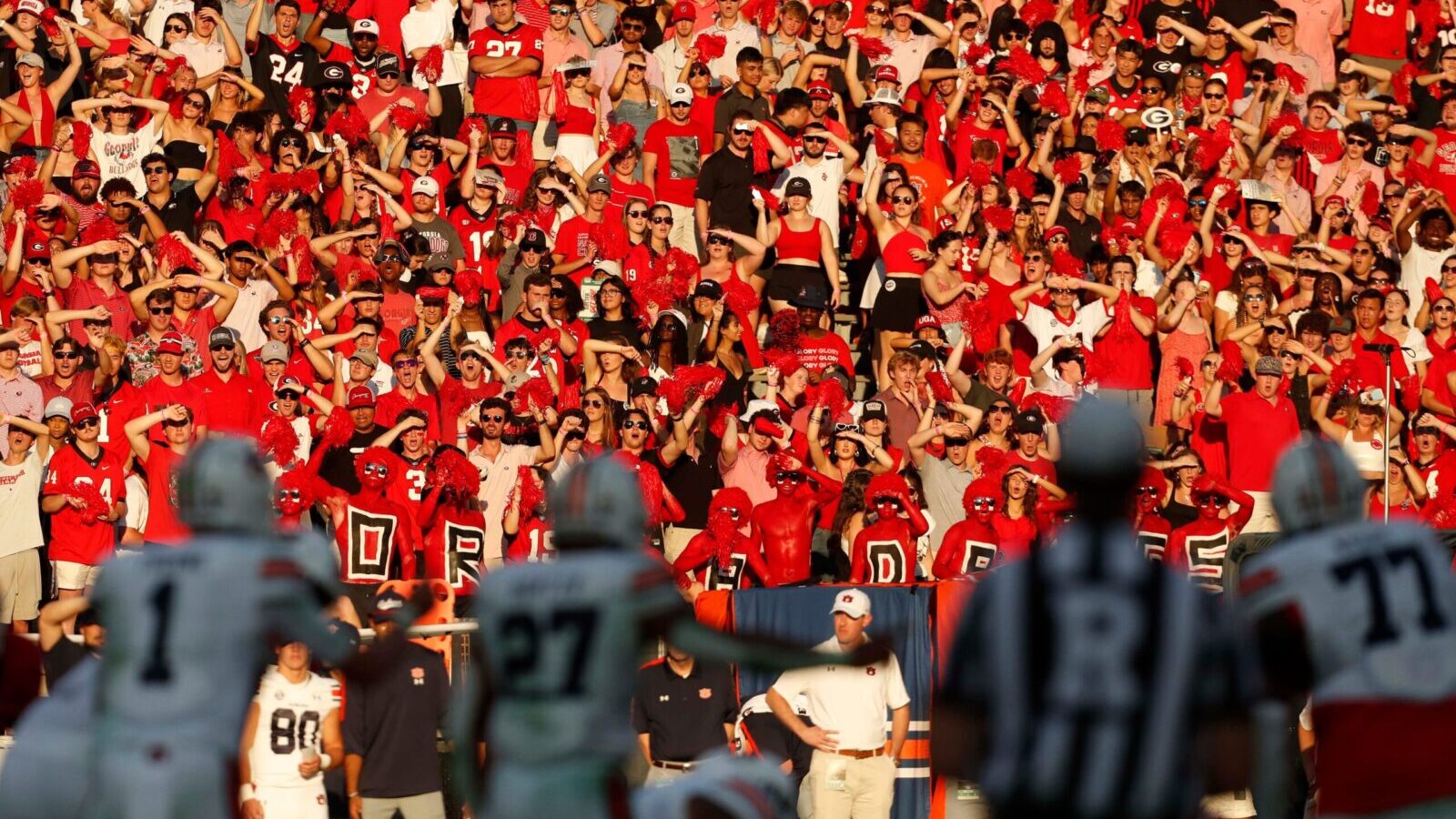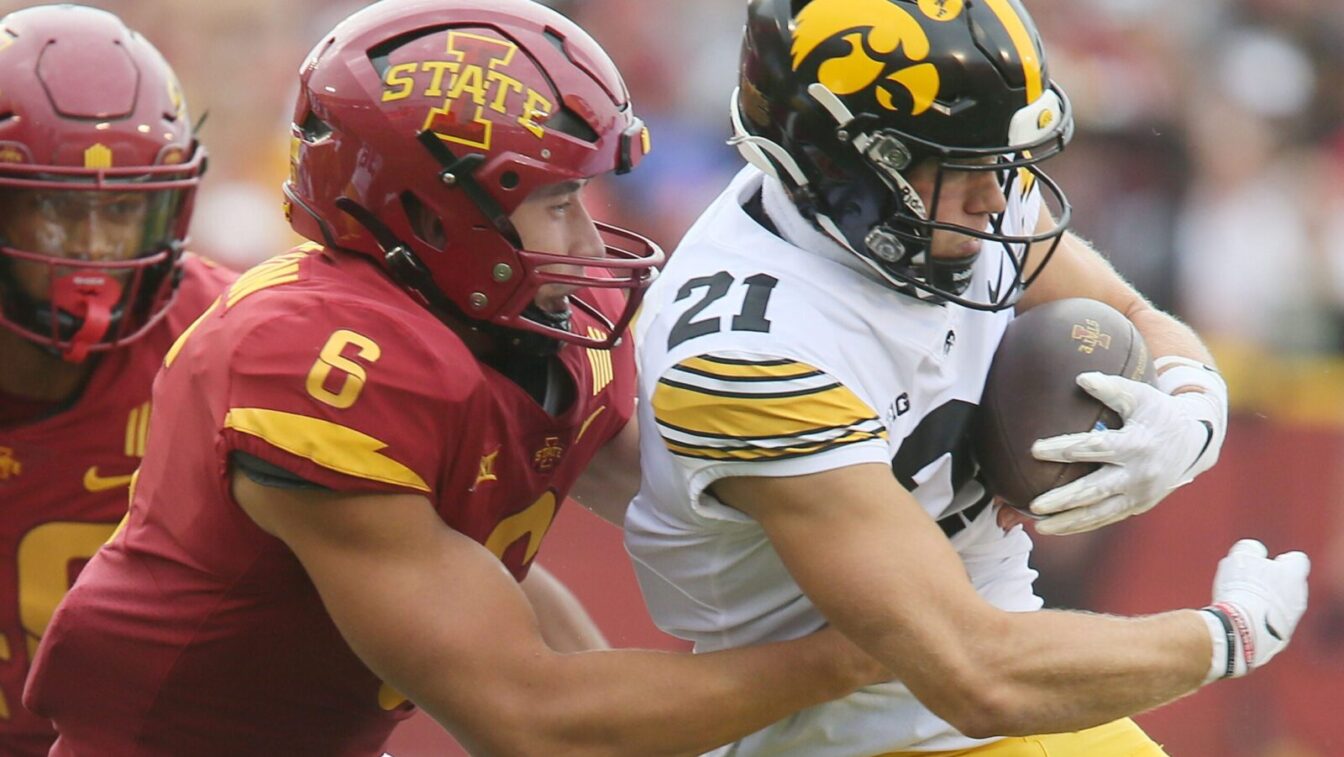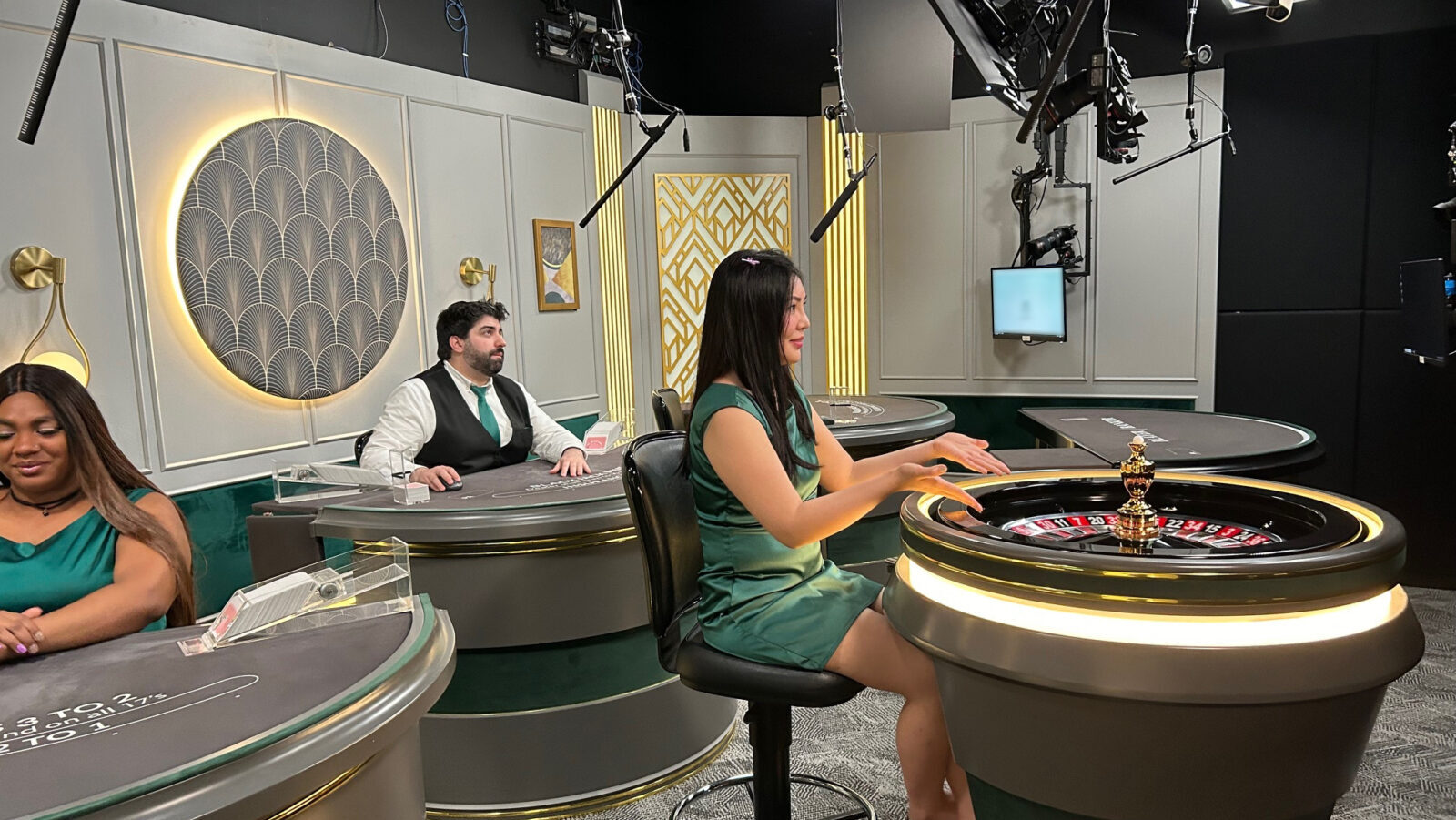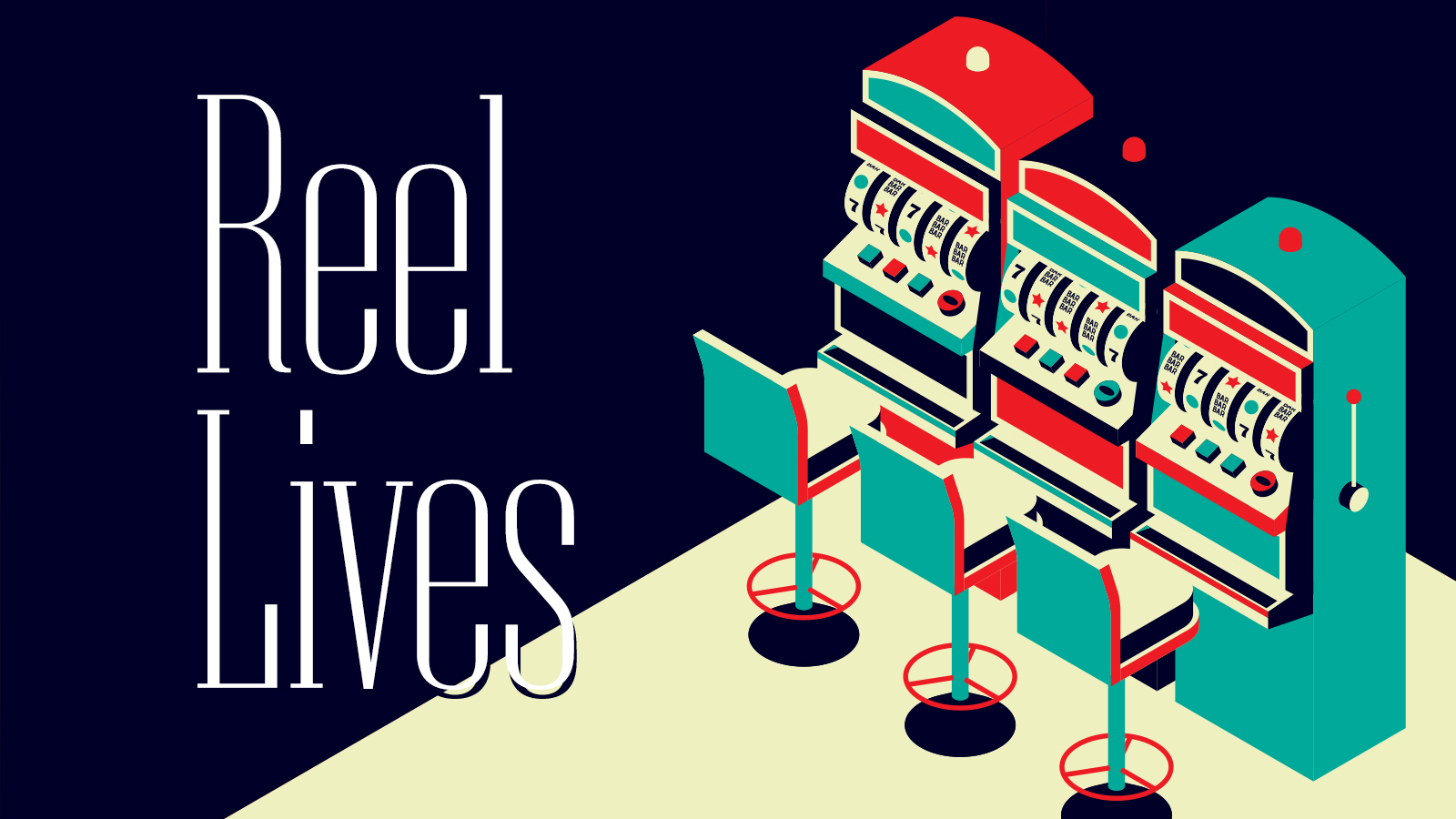Athletes, Coaches, Administrators Share Candid Thoughts On Sports Betting’s Presence On College Campuses
‘I do feel that the athletes want to be part of the action,’ one coach acknowledges
8 min

Early in this college football season, Michigan State quarterback Aidan Chiles made national headlines when he was talking to media members about the Spartans’ upcoming game against Florida Atlantic.
Rather than predict a high-scoring contest, Chiles put it in different terms that caught many off-guard.
“If you bet, take the over,” said Chiles.
A starting QB making a blatant sports betting reference in front of the media generated a storyline those within the walls of the NCAA offices would rather not deal with.
Chiles’ remarks are just another example of how much sports betting has become a mainstream topic. Such is the case when promotions from the national sportsbooks have become ubiquitous during game time.
As for the impact of these advertisements on those actually participating in the games, the NCAA and its member schools have taken a public stance that student-athletes are insulated from the influences through campus educational campaigns.
Some recent examples before Chiles, including Kayshon Boutte’s alleged involvement with gambling at LSU and Iowa State’s DeShawn Hanika being charged with making improper wagers back in 2023, seem to indicate the wall between players and the sports betting world isn’t as well constructed as the schools hoped for.
In an effort to understand the current climate on college campuses regarding student-athletes and sports betting in a post-PASPA world, I interviewed a number of Division I administrators, coaches, and football, basketball, and baseball players on the topic. The goal was to look at this subject not just when a controversy sparks attention but in a broader sense to see how aware and interested student-athletes are with sports betting.
All of the respondents were given anonymity to elicit honest answers and to prevent their schools possibly being cast in a negative light.
Finally, respondents were not asked if they have personally wagered on any games. A question related to self-incrimination provides little validity and the goal of this piece is to assess the exposure college players have to the growing presence of sports betting, not to out any of them.
Here is what this group had to say about the interest student-athletes have in sports betting.
Uphill from the start
Even with all the information directed to college athletes about the illegality of betting on sports governed by the NCAA, it is a topic they can’t avoid, according to a compliance director of a high mid-major with a football program.
“It’s virtually impossible to guarantee any and every student-athlete is going to adhere to NCAA gambling rules,” said the compliance director in a state that allows legalized sports betting. “Gambling is promoted so heavily now by TV networks and online platforms, it’s really easy for someone who is interested in wagering on sports, even their own, to find a way to do it. Simply put, if a student-athlete is inclined to gamble, they’re going to do it, and it won’t take much effort on their part to find a way to do so in a fairly anonymous fashion.”
Another compliance director, from a school that competes at the FCS level for football, had a similar response. He believes there is no way to isolate student-athletes from the societal shift that is now so welcoming of legalized sports betting.
“The ease of access across the country and the promotion of things like player props make it easy for someone to bet on almost literally anything related to college or professional sports. This was so prevalent with Iowa State.
“And given that it’s so difficult to track, an individual needs to be incredibly reckless for the most part to get caught.”
He added that most college students in general lack financial literacy, so the ones betting don’t understand how hard it is to just break even.
From his perspective on the sidelines of a Division I basketball program, a coach says he encounters a similar situation where the ease of betting overshadows all the counter-programming the student-athletes receive.
“It’s impossible to keep them away from betting,” the coach said. “Coaches, universities, and everyone can educate and tell them to not bet, but it’s nearly impossible to monitor.
“Betting goes beyond just DraftKings or in casinos, for the athletes some of them are having family members create accounts for them so they can bet through someone else’s name.
“Feels like a lost cause to keep players from taking part in this.”
A baseball coach for a mid-major program located in the Mid-Atlantic area takes a pragmatic approach to the overall rising popularity of sports betting and its ancillary impact on college athletics.
“There’s no way we should be naive enough to think that there are not young people or staff within our programs that are betting in some form on games, regardless of our emphasis on consequences,” said the coach, whose program is flanked by states with legalized sports betting. “I do feel that the athletes, because they live in this world, want to be part of the action.”
Message received
An underclassman football player in the Big 12 said the anti-sports-betting campaign directed at his team has worked and curtailed any interest the players may have had. His school made all the incoming players aware of what Hanika did at Iowa State.
Hanika was accused of underage gambling and registering accounts on mobile sports betting apps under a different name to disguise his identity. Allegedly, he made 288 bets (70 on Iowa State basketball).
Ultimately the charges were dropped after a judge ruled the state took too long to indict him. He is currently a member of the Kansas football program.
“We have already had multiple meetings about gambling and the consequences forced upon us by the NCAA if we do,” said this player. “I stay away from even being aware of the betting lines, and I don’t hear teammates talking about it at all.”
He added: “I know I just can’t bet on anything at all.”
This player would be the best representation of what D1 athletic departments and the NCAA hope will keep their players away from any involvement with sports betting.
However, based on the other interviews conducted, this player staying sequestered from anything sports betting related was the exception.
The information age
A current graduate transfer basketball player says he knows little about sports betting. However, it is an unavoidable topic.
“I think me and my team are aware of a point spread when we look online about the team we are playing. But I’m not looking to know who is the actual underdog or the top dog.”
Both of the compliance directors interviewed had a similar feeling about point-spread information trickling down to the players.
“I think for the most part players aren’t out there actively looking for what the point spread is, but they can still see what it is in so many places,” said one of the compliance directors. “This happens especially when the spread is something comical that gets a lot of attention.”
Point spreads and betting news seem to be popular fodder for college-aged people according to this graduate basketball player. He says that although he doesn’t look for information on the subject, he still commonly comes across it while scrolling through social media.
“I think it’s more my friends who don’t play sports are the ones always mentioning something about sports betting. I see them post all the time the bets they hit or miss at. Sounds like betting is getting the guys who don’t play sports into sports more.”
Back to the previously quoted basketball coach from a high mid-major in a Midwestern state with legalized sports betting — he believes there is a growing interest in sports betting among college players, especially those that now have some newfound liquidity.
“Betting is a major topic around the locker room. Two things happen. One would be they talk about parlays and trying to get ‘rich’ off of bets. Two, the NIL money the guys have, they would want to push into bets to try to get more.
“Athletes are very in tune with the topic in general. They feel like people are betting on games and they want to be in the loop with all that stuff.”
Good teams win, great teams cover
The basketball coach described an environment where he and others of similar stature are caught between mixed messages by instructing players to avoid sports betting when they are also bombarded by marketing content by companies offering it.
Then add in other factors such as the media and alumni.
“One hundred percent, the kids are aware of the point spread,” he said. “I know this because we (coaches) are also aware. You just open the ESPN app to look for game times of other teams and the spreads pop up.”
In the sports betting community, Penn State football games often have a unique element to them. Head coach James Franklin has shown a propensity to score late points, which results in the Nittany Lions covering spreads. Some has speculated that Franklin is actually trying to satisfy his rabid fan base with a cover, not just a win.
Earlier this season Penn State had a spread of minus-49 against Kent State and won 56-0 with the help of a 14-point fourth quarter.
That basketball coach says those in his profession can identify with someone in Franklin’s position.
“We would get calls from our fans on our office lines bashing us for not covering a spread at least once a week.”
Back to that football player new to the Big 12, he reported that his school encourages players to close off their social media direct messages in order to prevent angry bettors from contacting them.
Maybe this is just a coincidence, but Chiles’ Michigan State squad recently lost to Oregon on the road but kicked a field goal with 25 seconds left in the game when they were trailing 31-7 — and the successful attempt just happened to allow the Spartans to cover.
The current state of fandom
A D1 baseball player says he and his teammates have been educated against sports betting through seminars and there are flyers in the locker room warning against it; nonetheless, they are also sports fans and when talking about the games, point spreads are a major part of the conversation.
“[Sports betting is] a pretty big topic of conversation for us,” he said. “Like when we are talking about the NFL and our favorite teams, someone usually asks if they will cover this week. Then everyone talks about who they are betting this week.”
He thinks a majority of those 21 years or older bet on NFL games.
This seems to be aligned with a survey the NCAA did regarding sports betting on campus. The survey of 18-to-22-year-olds found that 58% of the respondents had placed at least one sports bet. For those living on campus, 67% of them made some type of sports bet.
Even if there is no line posted for his team’s game, this baseball player said it’s common locker room banter to hypothetically make up lines themselves.
Another D1 baseball player from a strong mid-major program has a similar perspective, right down to the commonality of NFL betting chatter.
“I hear teammates talking about sports betting all the time. Often it starts from those not familiar with it asking those who are about it.
“I would say they mostly talk about the NFL. Rarely do I hear them talk about the MLB or the other leagues. I think most of them find the NFL most interesting, and when you talk about the NFL, there is usually betting.”
The baseball coach mentioned earlier added: “There is definitely an interest [among college athletes] in betting on football and basketball, especially when it comes to the Super Bowl, the college football playoffs, and March Madness.”
Closing line
Based on the interviews conducted for this article (including others who were not quoted but had similar responses), many college athletes are both aware of and interested in sports betting topics. Some even act on it.
That makes Chiles’ reference to the “over” in tune with the thought process of many other student-athletes.
While the cases of players going astray of laws or protocols get the most attention, a betting culture seems to permeate across college campuses.
With these players living in a mediated environment with so much sports betting content, it seems implausible that the interest can be diminished. For the most part, the administrators are just hoping a line doesn’t get crossed.
The college basketball coach who is heavily quoted in this article gave a summation that is likely a common one for those in his position.
“The gambling completely surrounds us. As a coach, if we hear anything that needs to be addressed, we would handle it, otherwise we have selective hearing and try to stay out of the know with a lot of the conversations. It’s just a rabbit hole that we don’t want to go down.”
Note: No Rider University administrations, coaches or players were used as sources for this story.




